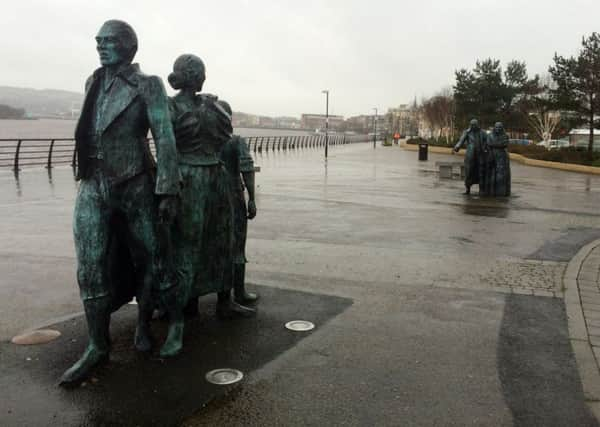'˜Immigration? It was foreign people that saved my wife's life'


Indeed, ‘Brexit’ felt more ‘real’ to people in Derry than in England, and immigration less polarising, according to a new report compiled by British Future, a group that over the past year has been hosting focus groups across Britain and the North as part of its ‘National Conversation on Immigration.’
Researchers from the institute visited 60 towns and cities and in Derry convened a citizens’ panel of ten members who were recruited to reflect the city’s demographic profile. Crucially, those with very strong views, for or against immigration, were excluded.
Advertisement
Hide AdAdvertisement
Hide AdThe authors found “most of the panel were balancers, citing the benefits of migration alongside their concerns”.
One unnamed participant, is quoted: “I work as a public servant and we’ve been affected very heavily by immigration. But I’ve another point of view, when we had our first child it was foreign people that saved my wife’s life. She had a post-partum haemorrhage. So from a personal point of view, I agree there are a few problems that come, but there are positives, so two sides. The cancer centre would not work without them.”
Notwithstanding the life-saving work of non-native nurses and doctors in Derry the panel included immigration critics. One person, for example, claimed immigration was now being discussed more often in Derry as a result of political violence perpertrated by Islamists in Britain and Europe.
“It’s more talked about now, like the girl said because of the terrorist attacks. If these attacks were not happening, it would be less talked about, but because these attacks happen everyone talks about it,” they said.
Advertisement
Hide AdAdvertisement
Hide AdFurthermore, the surveyors recorded concerns among panellists about “competition for jobs and social housing” and “preferential access to welfare benefits and concerns that migrants posed a security risk”.
They reported “integration was seen as a two-way relationship, with local communities having a duty to welcome new arrivals, an opinion that was voiced more strongly than in England”.
The authors also found “a great deal of anxiety about the impact on Derry-Londonderry of leaving the EU, in relation to the economy, EU grant aid and the peace process.
A lack of information about Brexit was also contributing to people’s “anxiety about the future”, the report stated.